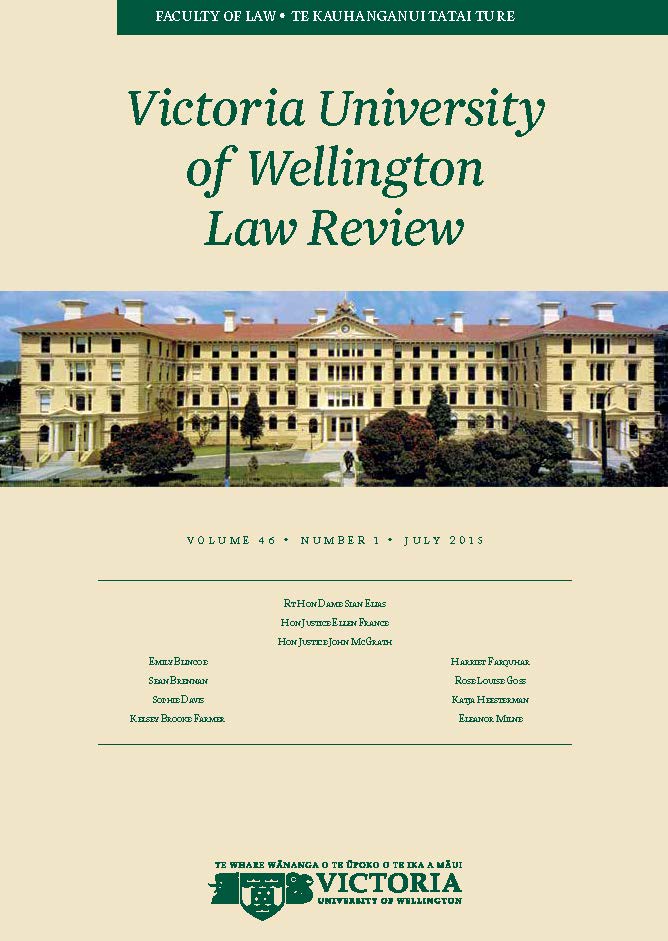A Decay of Rights: The Decision in New Health New Zealand Inc v South Taranaki District Council
DOI:
https://doi.org/10.26686/vuwlr.v46i1.4930Abstract
The decision in New Health New Zealand Inc v South Taranaki District Council is the most recent legal development in the New Zealand debate about fluoridation of public water supplies. That decision centred on the interpretation of s 11 of the New Zealand Bill of Rights Act 1990, the right to refuse medical treatment. The Court held that the fluoridation in question was legal, and reached a limited definition of medical treatment that did not encompass fluoridation. This article analyses the reasoning leading to that interpretation, concluding that the decision is problematic and that the definition of s 11 needs to be remedied. The use of the wording of s 11 to limit the definition of medical treatment was inappropriate, as was the policy reasoning used to support that limitation. The structure of the reasoning exacerbated these issues and adhered too closely to the reasoning in United States cases. Furthermore, the application of a de minimis threshold was conducted without adequate scrutiny, and such a threshold should not be applied to s 11.
Downloads
Downloads
Published
How to Cite
Issue
Section
License
Authors retain copyright in their work published in the Victoria University of Wellington Law Review.


